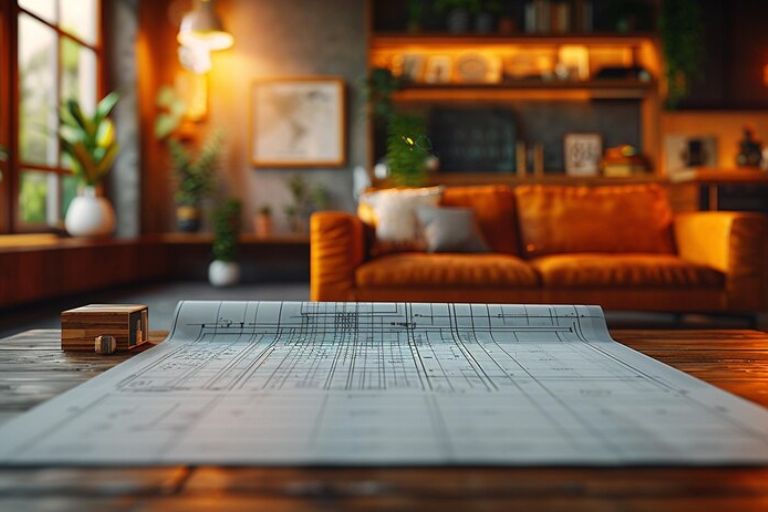Hey there!
So, are you thinking of starting a construction project, huh? Exciting stuff!
But before initiating the deeds of construction, let’s take a quick look at some important factors to be considered.
We will present to you a pre-construction checklist – the stuff you should nail down before hammering the said. Let’s get started!
WHAT IS PRE-CONSTRUCTION PLANNING?
Pre-construction planning involves thorough preparation and coordination to ensure everything is in place before breaking ground. It is like laying the groundwork for the construction activities that are subjected to take place in the process of designing, execution, and management.
WHY PRE-CONSTRUCTION PLANNING IS IMPORTANT?
With numerous crucial factors in mind, when we begin planning to construct a new house, renovate our properties, or engage in any building project, what we generally neglect is the importance of sustained pre-construction planning.
The pre-construction phase is vital to guarantee a seamless construction process and it is required for establishing a strong foundation for future executions. This also assists in staying within budget and meeting the specified time frame, while also preventing potential issues through pre-construction services.
FACTORS TO CONSIDER
Recognize the Type of Construction Project Each project has specific procedures that must be adhered to. Therefore, it is crucial to specify the type of project to determine requirements. Identifying the project helps in easily obtaining the required permits based on state regulations. Hence, it is essential to remember this in project planning.
Site Selection Speculate on factors such as location, accessibility, zoning regulations, environmental considerations, soil conditions, infrastructure availability, etc., and select a suitable site for the proposed construction project.
Budget and Financing Calculate the overall project budget, accounting for all expenses such as materials, labor, permits, and unforeseen circumstances. It is essential to fully grasp the available financial resources and their distribution over the project’s timeframe.
Project objectives Determine and explain the project’s extent and goals to grasp what needs to be achieved. Having a clearly defined scope aids in efficiently planning and overseeing the project.
Site considerations Assess the location and site conditions including soil type, topography, zoning regulations, and environmental factors. Knowledge of these aspects aids in creating suitable designs and plans.
Local Building Regulations Research the local building codes and regulations, as it is essential to ensure compliance in construction, prioritizing the project’s safety. Get familiar with the most common zoning laws and environmental regulations like stormwater management requirements, Height and bulk restrictions, Setbacks from property lines, etc the idea of new materials and technology can also improve cost-efficiency and safety in your construction project.
Educate yourself on what is permissible and what is not Before starting a construction project. This will prevent delays and help in optimizing resources to save time and money.
Risk Management Risk management minimizes disruptions by implementing strategies to mitigate risks. To protect the project’s success, it involves identifying potential risks and creating plans to reduce the negative impact on a project’s delivery.
Scheduling & Timeline Generation Take account of the seasonal weather changes, material delivery times, and other variable factors, to create a well-organized schedule. This will ensure on-time project completion and facilitate the coordination of different tasks to aid a sublime construction.
Sustainability and Environmental Impact It involves incorporating energy-efficient design, renewable materials, waste management strategies, and green building practices as per the sustainability principles for minimizing the project’s environmental impact.
Create a maintenance plan Formulate a thorough maintenance plan incorporating the elements of regular inspections, and preventative maintenance schedules stating the instructions for handling repairs and replacements. This plan would guarantee the building’s long-term functionality and sustainability.
Building adaptability Predict the upcoming shifts in building function or technology and incorporate adaptability into the planning process for design flexibility. using modular building techniques, and making adjustments to infrastructure, this may entail creating versatile areas for future adaptations.
Quality Control and Safety Enforce quality assurance procedures and Emphasize quality control and safety to uphold construction standards, at every stage of construction. This guarantees the durability of the planned structure.
Stakeholder Engagement Establish positive relationships among the clients, investors, regulatory agencies, local communities, and neighboring properties while identifying and engaging them throughout the project lifecycle. Addressing stakeholder concerns and maintaining open communication mitigates conflicts and fosters the construction processes.
This key sum-up would aid you in making sure you’re following all the rules or not.
Optimizing resource management, ensuring timely formulations, and high-quality delivery helps in reducing future risks. Thorough pre-construction planning involves factors like project goals, feasibility, budget, site selection, design, regulations, risk management, and procurement, to establish a strong foundation for increasing the chances of achieving project goals.
Now you have a plan for any curveballs that might hit your way.
Get all that sorted, and you’ll be off to start a project!
Happy building!
We deliver, what we promise ~Concept space




Add Comment